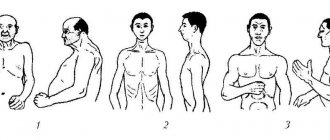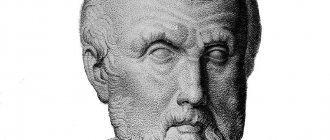Essence and concept
In psychology, the term “personality” is understood as a person who has a set of psychological characteristics that have a direct impact on actions and their significance in society. Each person is individual and therefore always different from the other.
There are also other scientific definitions of personality. For example, his role in society, experience and knowledge. This is a person who bears full responsibility for his life, controls his choices and has a sense of responsibility for his actions.
Thus, personality is a set of habits that have been developed over the years and a person’s preferences, his emotional mood and vitality, sociocultural experience and knowledge accumulated over many years of life. This is a unique set of human traits and characteristics at the psychological and physiological levels. It is also a human archetype that defines everyday behavior and the connection between society and the natural world. In addition, the personality is identified in terms of the manifestation of “behavioral masks” created for different life situations and groups of social interaction.
Personality is a relatively stable system of individual behavior, the core of which is self-esteem, created on the basis of the value judgments of other people and a person’s assessment of his environment.
The concept of personality does not have strict boundaries or frameworks: in everyday life it is understood, for example, as the character of the entire person as a whole
The term “personality” is inextricably linked with two more psychological concepts - individual and individuality. The first is understood as an individual person who has a set of qualities, both innate and acquired. Individuality is a system of characteristics and exclusive traits by which one person can be distinguished from another. It is on this, internal uniqueness, that personal uniqueness and the makeup of the human psyche depend.
Despite the similarity of definitions, they cannot be identified or equated with each other, because both terms describe individual aspects of human life. At the same time, it would also be wrong to excessively distance the concepts from each other. After all, each person is multifaceted, it is impossible to consider him exclusively from one side, like the visible side of the Moon.
Practical and theoretical abilities
Practical abilities are understood as the ability of an individual to pose and solve problems that require action in certain situations.
Theoretical abilities determine abstract and logical thinking, the ability to solve theoretical problems.
Academic and creative abilities
Learning abilities mean how well a person learns new things, acquires knowledge, and acquires skills.
Creative abilities determine an individual’s ability to generate new ideas and produce spiritual and material values.
General and special abilities
General abilities are understood as those abilities that every person has (general mental, motor). But they are developed differently for everyone. And success in certain areas depends on this.
Special abilities can be defined as specific abilities that not every individual has. As a rule, they require innate abilities. This could be musical, acting or literary abilities.
Personality structure
Both the concept itself and the structure of personality have raised questions and disputes among researchers and scientists over many years of the development of psychological science. Some psychologists are convinced that the term cannot be structurized or rationalized at all. At the same time, other specialists do not tire of searching for and discovering new theories of personality structure. However, today there are some clearly defined parameters that make it possible to understand the structure of personality. There are several such systems. Depending on objective and subjective social properties, personal structure is based on such approaches as:
activity, culture, memory, value orientations, culture, roles and statuses
Biological and social structures of personality have 4 levels:
1. Lower - a substructure that combines age and gender properties of the psyche, innate characteristics of the nervous system, aspects of temperament.
2. The second is individual manifestations of memory and perception, thinking and abilities, sensations. These characteristics depend both on innate factors and on acquired experience - training, development and improvement.
3. The third is social experience based on knowledge and skills, habits and abilities.
4. The highest level represents the orientation of the individual. It consists of drives and desires, inclinations and views, interests and ideals, beliefs and worldview.
People differ significantly from each other: each substructure of a particular personality has differences in beliefs and interests, experience and knowledge, abilities and skills, character and temperament. That is why it can be difficult to understand another person by the example of oneself; it is not easy to understand contradictions and discrepancies in opinions, the nature of conflicts between people. For a deeper understanding of yourself and others, you cannot do without certain knowledge and natural observation.
Key components of personality: temperament, character, abilities, emotions and will, motives and needs, orientation
The impact of the individual on society
The role of the individual in the development of society is also high. Let's look at an example of how a person influences society:
- A.V. Suvorov is a famous Russian commander, enjoyed great respect among the soldiers. He managed to win many battles in which the enemy army was several times larger than the Russian one. The soldiers loved and respected Suvorov so much that they went into any battle without fear, under his leadership. Thus, thanks to the personal qualities of a military leader, Russia won victories in many wars.
- The famous inventor Henry Ford created an assembly line production of cars, thanks to which the car became an affordable means of transportation for many Americans.
- Nicolaus Copernicus was the first to reject the idea that the Earth is stationary, suggesting that it rotates around the Sun and on its own axis. His works subsequently led to many different discoveries.
Thus, the influence of the individual on society and society on the individual are interconnected.
Basic personality types
One of the most popular personality typologies was developed by Swiss analytical psychologist Carl Gustav Jung. In his work as a practicing psychologist, Jung distinguishes two main personality types: extroverts and introverts. The typology differs depending on what a person is more focused on during his life: on external objects or on internal experiences. One can often mistakenly classify oneself as the opposite type due to the existing special tendency, which aims to compensate for one-sided actions.
One should also take into account the fact that each person contains the qualities of both an extrovert and an introvert, a certain combination of which represents a specific personality type. “Life is determined by consciousness” - this is exactly what can be said in the case of an extroverted personality type. “Consciousness determines life” is a more relevant principle for introverts.
It would be logical to strive to balance both types, but in real life this does not happen: there is always a certain “skew” in worldview and self-identification. As a result, a certain type is distinguished according to the method of predominance of one or another mechanism of interaction with the outside world.
Traits of people that characterize their temperament
The innate qualities of a person shape him as a social being. Behavioral factors, type of activity and social circle are taken into account. The category is divided into 4 concepts: sanguine, melancholic, choleric and phlegmatic.
- A sanguine person is a strong and balanced person who easily adapts to a new environment and overcomes obstacles. Sociability, responsiveness, openness, cheerfulness and leadership are the main personality traits.
- A melancholic person is a weak and sedentary person. Under the influence of strong stimuli, behavioral disturbances occur, manifested by a passive attitude towards any activity. Isolation, pessimism, anxiety, tendency to reason and resentment are characteristic features of melancholic people.
- Cholerics are strong, unbalanced, energetic personality traits. They are quick-tempered and unrestrained. Touchiness, impulsiveness, emotionality and instability are clear indicators of a restless temperament.
- A phlegmatic person is a balanced, inert and slow person, not prone to change. Personal indicators show how to easily overcome negative factors. Reliability, goodwill, peacefulness and prudence are the hallmarks of calm people.
Personality qualities
Personality traits in psychology are understood as a unique set of traits and characteristics that are inherent to a person. They are purely personal in nature and express aspects of character, behavioral patterns in society or the surrounding world.
Personal qualities are characterized by dynamism and stability. They influence all aspects of human life, be it the choice of clothes for going out or career preferences and ambitions in professional activities.
Personality traits are classified into several types, for example:
Socio-psychological. Basic and secondary properties, a set of traits and features in the structure of an individual.
Strong-willed. For example, purposefulness, independence, determination, endurance.
Moral. These properties are adjusted by life under the influence of a combination of factors: position in the family; the influence of an educational institution or a yard company; relations in society; individual life experience, etc. Each aspect operates according to specific moral rules. They form the individual’s attitude towards himself and his environment. Based on the values inherent in the inner world, moral qualities are classified into humanistic, nationalistic, racial, religious-fanatical.
Professional, for example:
verbality - language skills, excellent connections between words and concepts love and mastery of numbers - the ability to perform standard arithmetic operations with maximum accuracy and efficiency correction of numbers, three-dimensional understanding of objects detailing of objects and graphics motor coordination by the movement of limbs and eyes, coordination of signals dexterity and color perception general intelligence - a predisposition to learn, the ability to draw correct conclusions from assigned tasks
Will
Will is what allows an individual to control his actions and psyche. This is conscious control over one’s behavior, a conscious influence on the surrounding reality.
The following factors can be called signs of will:
- making informed decisions,
- achieving your goals, overcoming difficulties on the way to them,
- self-restraint, when in order to achieve a goal an individual deprives himself of something that may seem attractive to him,
- a clear action plan,
- lack of emotional satisfaction from solving the task,
- moral satisfaction associated with achieving and overcoming oneself.
Will is a person’s main assistant in achieving his goals, the quality that helps him develop and grow as a person. It is the will that helps a person overcome life’s difficulties, even when it seems that the goal is unattainable.
Personality Traits and Properties
Personality traits or properties refer to human characteristics that denote the deep (internal) characteristics of a particular individual. This applies to both behavior in society and the ability to communicate, as well as a special response to various life situations in the aspect of long-term contacts. The nature of personality traits is both biological (innate) and situational (depending on circumstances).
Personality traits cannot be called physical qualities, social characteristics and titles, or temporary states. Conclusions based on a subjective attitude towards the personality of another person cannot be perceived as personal properties.
Creating a complete and, especially, correct list of personality traits is impossible. Firstly, because it can be infinite, like the number of people on the planet. Secondly, the arbitrary nature of personal properties is always possible. Personality properties from the point of view of visibility are manifested in different ways: through character traits and temperament, interests and habits, developed abilities and style of activity of a particular person.
Temperament, as an important personality trait, describes how a person does something (not what he does). Temperament is determined by the type of higher nervous activity. Depending on its structure, experts distinguish 4 main types of temperament.
Choleric is fast, loud speech, impetuosity of movements, well-expressed facial expressions. A sanguine person has the same traits, but in a less pronounced form. Representatives of these two types are usually optimists in life.
A phlegmatic person needs a long time to respond. Representatives of this type of temperament tolerate monotonous loads well (work on a conveyor belt). It has been established that phlegmatic people in marriage are compatible with all temperaments. A melancholic person can be recognized from a whole crowd of people by the expression of sadness and grief on their face (popularly called the “Pierrot” mask). Melancholic people are eternal and incorrigible pessimists.
With age, in all temperaments, the share of melancholy increases (all people, as they grow older and accumulate life experience, become pessimists)
Temperament is the physiological basis of character. Character is an acquired quality. Character is described through a system of a person’s relationships to 4 structures:
towards oneself (selfishness, egocentrism) towards people (sociability, aggressiveness) towards activities (hard work, laziness) towards things (greed, accuracy)
The core of character is will - the human ability to force oneself to do what is needed in a life situation.
Abilities are those individual psychological characteristics that distinguish one person from another and allow one to quickly and easily perform a certain type of activity. The foundation of abilities is the ratio of hereditary and social. Abilities are formed and developed in the process of human activity. Abilities can be general - thinking, speech, etc. And also special (mathematical, musical, creative, etc.).
Emotions. Why is it so important to understand and know your emotions? The answer is simple: in order to manage them! After all, experiencing emotions and knowing them are not identical concepts. Experiencing emotions does not provide the key to managing them, while knowing them allows you to understand yourself. In order to manage emotions, a person must know how they are structured, as a result of what acts of the soul they appear and continue to exist, despite obvious attempts to hide them.
Individuality
In the process of personality formation, a person not only learns social norms that unite people, but also realizes his differences from others. Some of the differences between people appear from birth - even babies have different appearances and different temperaments. Over the years, differences in knowledge, skills, worldview, etc. are added to this. This is called individualization - self-determination of an individual, the formation of its unique qualities, worldview, moral and philosophical foundations.
| Individuality , as social science defines it, is a unique psychophysiological structure of a person. A unique complex that consists of temperament, character, intelligence, worldview, abilities and skills, external features, etc. |
This term emphasizes the uniqueness of each individual, his originality. After all, even monozygotic twins, who are exactly the same from a genetic point of view, acquire different life experiences over the years, and this entails more and more differences.
We will help you consolidate new material in social studies courses at the Skysmart online school.
Personality formation
Factors
The psychological development of a person is influenced by hereditary factors, on the one hand, and factors of the physical and social environment, on the other. Mental development, like psychological development, continues throughout a person’s life. The prerequisite for individuality, the root cause for the formation of human originality, is, first of all, the environment where the future personality grows. An important role is played by the associations accumulated by a person in childhood, the model of education that instills moral guidelines, the peculiarities of the family structure and the principles of treating a child.
There is an opinion among psychologists that individuals are born. They become a person. And uniqueness must be defended in the process of life
Genes control human development from birth, just as the lifestyle of the expectant mother affects the fetus. After birth, caring for the child supports his physical life, but at the same time directly affects the mental development of the future personality.
Different stages of a person’s life take into account certain tasks of mental development. Of course, successes occur regularly, but problems often arise. Psychological information is used to find solutions to any child's developmental problems - for example, in terms of language skills or schooling.
There are a number of opinions about which age periods of the individual are most important for the whole life. Psychology of life is the detailed study of human development at each stage of life. Individual development can be viewed through different methodologies and perspectives.
Stages of psychological development of personality, their features and connections with changes in physiology
Childhood. A child's first task is to learn that the world is a safe place and people can be trusted. That is why it is important that what is perceived and viewed by the baby during this period of life is appropriate for his age.
The children's sensory world, due to its immaturity, is still very small. Children under three years of age observe everything at a subconscious level of understanding. By school age, the boundaries of fairy tales and truth begin to be perceived visibly and tangibly.
Adolescence. The most important thing in adolescence is the formation of personality: who I am, how I behave. Today, thanks to technology such as social media, you can even get reactions to your own comments and photos. At the same time, it all becomes surprisingly fragile: feedback can become a problem if she is not resilient enough to accept it.
Youth. This is a period of active self-determination and self-searching. There is often a strong tendency to create idols and negative self-identification in order to strive for a feeling of personal irresistibility. At the end of this stage, people often come to independence and a clear definition of their future life path.
Youth, which lasts approximately from 20 to 25 years, has such characteristic features as the desire to create a family and personal attachments, including intimacy. In first place in importance comes such a feeling as love, a feeling of attachment to a loved one, caring for him.
Maturity is one of the longest periods of personal formation. During this time, a person who has already achieved certain successes in life no longer focuses on his own personality, but on others. He strives to share his accumulated experience, unique knowledge, skills, and finally, simply life wisdom.
Aging. During this phase of development, an active rethinking of one’s actions occurs. Therefore, it is very important for a feeling of happiness to be able to find joyful moments in the past and, of course, maintain physical health as much as possible.
Today, more and more people are able to live to a ripe old age. We need to work to make old age a meaningful and conscious stage of life.
How to determine the level of personality development
The level at which a person’s problem is located, its development, can be determined by its relationships. As a rule, undeveloped persons are limited to mercantile interests. If it is highly developed, then this indicates that relations of social significance predominate in it, and numerous individual abilities are observed both for social relations and for self-development. Each individual throughout his life is engaged in solving quite complex problems, and the essence is largely manifested in the way he solves these very problems. After all, each person solves difficulties using different methods. Understanding an individual means understanding what his priority life values are, what principles he is guided by when solving problems. The problem of personality lies in self-awareness and self-improvement, which must be continuous.
Basic theories of personality research
Sigmund Freud
According to Freud's psychological theory, a person's personality has three main components:
1. Id - “it”, i.e. all aspects inherent in nature and genetics, in particular, due to basic instincts.
2. Ego - a sense of one’s own “I”, which is in constant interaction with the outside world.
3. The superego appears as a kind of judge of activities and thoughts. Its functions are carried out by conscience, introspection and formed ideals.
Carl Gustav Jung
Jung in his medical practice was guided by an individual approach to each patient. Therefore, he began his work by establishing the patient’s character traits, the peculiarities of his psyche. He achieved this difficult goal with the help of a unique system - a typology of personalities. She served him as a map, helping to identify the specifics of the individual. Understand the prevailing psychological functions, what is the human relationship to the external world and to the internal world. Thus, Jung identified eight personality types and divided them into two groups - rational and irrational.
He considered the thinking and feeling types to be rational types. People belonging to it, in making decisions and making judgments, are guided by pre-formed views and beliefs, and perceive the world through the prism of attitudes of consciousness.
The scientist designated the sensing and the intuitive as irrational. People of these types are less guided by reason; they react to stimuli the way they react, without trying to squeeze into the framework of their own or others’ views. Direct experiences are important to them.
William James
The American pragmatic psychologist argued that man has continuous thinking and selective consciousness, emphasizing that life is the sum of various habits. He analyzed personality from three sides - the constituent elements (physical or material, social and spiritual), feelings and emotions (self-esteem), as well as actions caused by self-preservation and self-care.
James' personality formula states that cognition consists equally of attitude and behavior.
Alfred Adler
According to the principles of individual psychology of another scientist, an individual’s lifestyle is demonstrated through attitudes and behavior. At the same time, it is necessarily formed under the influence of society. According to Adler, personality has a single structure, and the fundamental factor in its development is the natural desire for superiority. Therefore, a person is divided into four main subtypes: socially useful, avoidant, receiving, managing.
Roberto Assagioli
In accordance with the psychosynthesis of this specialist, there are 8 zones in the basic structure of the human psyche. The lower unconscious begins the pyramid of substructures, and the subpersonality completes it. The meaning of the development of the psyche is to increase its unity.
Biological approach
The so-called type theory puts a key emphasis on the structure of the human body. For example, according to Kretschmer’s constitutional typology there is leptosomatic, alectic, picnic, dysplastic. And Sheldon classified personalities according to endo-, ecto- and mesomophic physiques.
Eduard Spranger
Another concept describes the human personality according to the form of knowledge of the world and spiritual values. This could be a theorist, economist, esthete, politician, and so on.
Gordon Allport
The opinion is based on the uniqueness of each individual in specific traits. The author of the theory believed that what is “own” in a person’s inner world is his unique distinguishing feature.
Kurt Lewin
The source of the driving forces of personality, according to Lewin, is hidden in the tandem of a person with a situation and is determined by his attitude to certain circumstances.
Phenomenological and humanistic theories
The main principle is a positive beginning in every person, the desire and realization of personal potential to the maximum. For example, one of the proponents of this approach, A. Maslow, put the human need for self-actualization in the first place.
Erich Fromm
Its adherents consider self-expression and manifestation of personal individuality to be the leading position in this concept.
Victor Frankl
The key points are freedom, responsibility, the meaning of life.
* * *
To sum up, we can confidently say that a person’s personality, both in the skeptical science of psychology and in the versatile practice of life, is multifaceted and unique, like the exclusive pattern of a tiny snowflake under a microscope. In our changing and far from ideal world, it is very important to preserve our own unique features and originality, values and priorities.
Whatever the external circumstances, it is important to remember one main truth: I am a person, the whole world, the Universe, the endless Cosmos. And a real person should not adapt to the changing world, as the famous song says, or try to imitate someone, even if this person is a real star.
To achieve success in any aspect of life, it is important to be aware of your desires and aspirations, understand yourself and adequately assess your abilities. No one else can take the place in the sun intended for a specific person. Because every individual is one of a kind. And therefore unique.
The influence of society on personality
Personality and social environment are inextricably linked. Its future depends on the environment in which a personality is formed. Seeing bad examples and irresponsible behavior in front of him, the child perceives this as a model. After some time, he may begin to behave the same way as his friends and people close to him. He may start drinking, smoking, stealing, without knowing that such behavior is the result of formed views on the world, the bad influence of his immediate environment.
Sometimes a person can fall under the bad influence of the social environment despite his desire. A schoolboy begins to smoke, fearing the ridicule of his classmates, who have long been addicted to cigarettes. A teenager decides to steal because of his friends’ obsessive persuasion to get easy money. An employee deceives his superiors after much persuasion from his colleague.
The positive influence of the environment on personality development is also manifested. Seeing before him examples of successful, happy and respected people, the child strives to imitate them and copy their behavior. Therefore, at school a lot of time is devoted to studying the biographies of national heroes, patriots, and outstanding personalities. A good example becomes an inspiration for work, creative activity, and activity in society.
Different structures of society have varying degrees of influence on the individual.
- Parents and close relatives have the greatest influence when raising a child from infancy.
- Second in terms of influence are school teachers.
- They are followed by friends, acquaintances, colleagues.
- The media play an important role (mass media: Internet, television, print media).
In addition, the individual is influenced by the socio-cultural environment characteristic of the state and the area in which he lives. So in Russia, the USA, India, Israel - the conditions for the formation of a personality are significantly different. Thanks to this, individual peoples and the population of different countries have their own distinctive character traits and individual characteristics.
Strong-willed traits of people
Adjusting behavioral factors associated with overcoming internal and external discomfort makes it possible to determine personal qualities: the level of effort and plans for taking actions, concentration in a given direction. Will manifests itself in the following properties:
- willpower - the level of effort to achieve the desired result;
- perseverance – the ability to mobilize to overcome troubles;
- endurance - the ability to limit feelings, thinking and actions.
Courage, self-control, commitment are the personal qualities of strong-willed people. They are classified into simple and complex acts. In a simple case, incentives to action flow into execution automatically. Complex acts are carried out on the basis of motivation, drawing up a plan and taking into account the consequences.
Introduction
Personality psychology occupies a special place in the system of psychological knowledge. Considering issues related to the basic characteristics of a person and his development, the outstanding psychologist B.G. Ananyev wrote: “The problem of personality, being one of the central ones in theoretical and applied psychology, acts as a study of the characteristics of mental properties and relationships of the individual (general personality psychology), individual characteristics and differences between people (differential psychology), interpersonal connections, status and roles of the individual. in various communities (social psychology), the subject of social behavior and specific types of activity (all areas of applied psychology).”
Another prominent psychologist, B.F. Lomov, classifying the category of personality as basic for psychological science and pointing out the versatility of this concept, set the task of theoretical synthesis of data accumulated in various psychological disciplines (sometimes, in his words, very contradictory), the task of "... revealing the integral qualities of a person, understanding him as organized integrity...", as well as revealing the objective foundations of these"... integral psychological properties that characterize a person as an individual, as an individuality and as a personality...".
Touching upon the methodological problems of personality theory in Russian psychology, he noted that the task “... of studying the organization of personality traits into a single structure and, above all, identifying those of them that act as system-forming ones,” is becoming especially significant.” And for this it is necessary: “... first of all, consider the question of the origin of personality traits. The mental properties of a person cannot be revealed otherwise than systemic ones, i.e. it is necessary to consider the individual as an element of the system that is society. On the other hand, a feature of systems theory is the mutual convertibility of such concepts as “element”, “system”, “subsystem”, “supersystem”: “... a system can be considered as an element of a higher order system, and an element - as a system (with in-depth analysis ); the attitude towards the system is determined not only by its content, but also by the point of view, position, and task of the researcher...” Consequently, the personality itself should be considered as an integral system. However, to understand an object as an integral system”... at a minimum, three different levels of its description are required: from the point of view of its inherent external, integral properties; from the point of view of its internal structure and the contribution of its components to the formation of the integral properties of the system; from the point of view of understanding this system as a subsystem of a wider system...”
Knowledge of individual personal characteristics, hidden from external observation, of teachers, managers, consultants, is of great importance for the success of training, education and professional activities.
Depending on the type of temperament, the nature of the course of nervous processes, character accentuations, the level of anxiety and psycho-emotional stability, the practice of pedagogical influences or the organization of work should be built in different, sometimes opposite, methods.
It is equally important to take into account individual personal characteristics to optimize professional activity. Knowledge of individual personality characteristics is necessary for professional selection, personnel selection, personnel assessment and reserve formation, career consultation, and career guidance.
Personality is a common everyday and scientific term that denotes: 1) a human individual as a subject of relationships and conscious activity (person, in the broad sense of the word) or 2) a stable system of socially significant traits that characterize an individual as a member of a particular society or community. Although these two concepts - face as the integrity of a person (Latin persona) and personality as his social and psychological appearance (Latin personalitas) - are terminologically quite distinguishable, they are sometimes used as synonyms.
The essential characteristics of personality and its main features are determined by:
· the content of a person’s worldview, his psychological essence;
· the degree of integrity of worldview and beliefs, the absence or presence of contradictions in them, reflecting the opposing interests of different layers of society;
· the degree of a person’s awareness of his place in society;
· the content and nature of needs and interests, the stability and ease of their switchability, their narrowness and versatility;
· specificity of the relationship and manifestation of various personal qualities.
Personality is so multifaceted in its individual psychological manifestations that the correlation of its various qualities can affect both the manifestations of worldview and behavior.
Since the late 1930s. In personality psychology, active differentiation of research areas began. As a result, by the second half of the last century, many different approaches and theories of personality had developed. If we approach the calculation of the number of modern personality theories formally, then there are at least 48 of their variants, and each of them can, in turn, be assessed according to five parameters.
Bibliography:
Sorokun P.A. Basics of psychology. Pskov, 2005. Stolin V.V. Psychology of personality self-awareness. M., 1983.
- THEORETICAL FRAMEWORK FOR FORMING A PROFESSIONAL TEAM
- Barrier to change
- Legal nature of the insurance contract
- Causes and conditions for the emergence of corruption
- International legal protection of industrial property rights
- The influence of anti-globalism on the development of globalization processes
- Concept and types of public protection of consumer rights
- Structure of the district court apparatus
- Structure of the apparatus of the Supreme Court of the Russian Federation
- Development of document automation systems
- Globalization of the world economy: essence, causes and consequences. (History of origin)
- How to get into a working mood. Review of effective self-motivation techniques
Individual character traits
Character is a set of individual traits that manifest themselves in different types of activity, communication and relationships with people. The development of personal qualities is formed against the background of life processes and the type of activity of people. To more accurately assess the character of people, behavioral factors in specific circumstances should be studied in detail.
Types of character:
- cycloid – mood swings;
- hyperthymic accentuation consists of high activity and failure to complete tasks;
- asthenic – capricious and depressive personal qualities;
- sensitive – timid personality;
- hysterical - the makings of leadership and vanity;
- dysthymic – focused on the negative side of current events.










